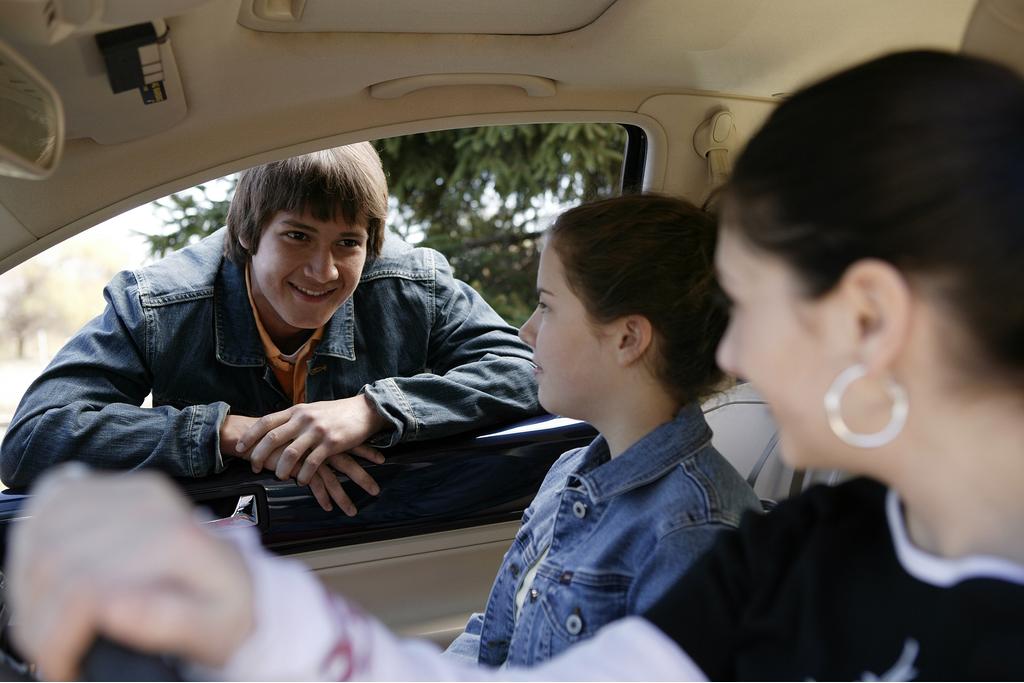
With the number of traffic fatalities attributable to alcohol topping 10,000, or nearly a third of annual highway deaths in the U.S., the dangers of drinking and driving are very real. Although it may be implicit in the "Don't drink and drive" message, what we don't seem to hear quite as much about is the peril for passengers. For teens in particular whose decision-making and risk-assessment capabilities aren't yet fully realized, this can prove to be a deadly distinction.
Related: Teen Driver Safety Week: Keep Teen Drivers Safe With These Five Rules
A study by Mothers Against Drunk Driving and State Farm Insurance, bolstered by research from Pennsylvania State University's Department of Biobehavioral Health, concluded that "while most students don't necessarily plan or intend to ride with a drinking driver, they're still at great risk to do so because they are willing to, should the occasion arise." The results of the study's online survey taken earlier this year of young people ages 15 to 20 paint a dangerous picture:
- Nearly a third of respondents had been the passenger in the car of a drinking driver at least once in the past year; nearly 3 percent had been 10 times or more.
- More than a quarter said they are willing to ride with a driver who has been drinking.
- A friend younger than 21 was the driver in 22 percent of cases, while a friend older than 21 drove in 35 percent of cases.
- A parent or guardian was the drinking driver 28 percent of the time.
- More than 60 percent of youths surveyed believe their friends have been passengers of drinking drivers in the past year.
In an interview with Cars.com, Dr. Robert Turrisi, of Penn State's Biobehavioral Health and Prevention Research Center, explained that young people get in cars with drinking drivers ultimately because they receive positive feedback for doing so. That feedback can be saving money on a taxi, trying to make sure a friend gets home safely, getting somewhere quickly or any number of other reasons tied to acceptance by peers.
To researchers, if young people think this behavior is going on 60 percent of the time when respondents are only reporting doing so half as much, it implies a perception that it is "normal" or "acceptable" to ride with a drinking driver.
To change this perception, researchers suggest parents engage in more open-ended conversations with their children. Instead of attacking the question of whether to ride with a drinking driver in a "yes" or "no" context, parents should talk to their kids in terms of "how," "what" and "why" to nail down the specifics of how they'll react when presented with the real-world scenario. Turrisi said that with more constructive dialogue and predetermined options, youth-passenger drunken-driving fatalities are a preventable tragedy.
"There's no reason why another child has to be lost to this kind of decision," he told Cars.com.
MADD National President Colleen Sheehey-Church knows this all too well. Her son Dustin was killed at age 18 while riding with a drinking driver in 2004. Sheehey-Church had talked to her son about the dangers of drunken driving, but had he felt empowered to refuse to get in the car with a driver who'd been drinking, he might have made a different decision that night.
"Stories like that happen all the time all across the country," she said.
That's why MADD this month its promoting its Power of You(th) program and Protect Your Friends campaign. The efforts encourage teens to protect themselves and their friends, asking them to take a pledge not to drink alcohol or ride with someone who's been drinking, to learn about ways to resist peer pressure and be a positive influence on their friends. They're encouraged to spread the word using the #ProtectUrFriends hashtag on social media.
As evidence that these empowerment efforts can be effective, survey results showed that one-fifth of youths had intervened to keep their friends from getting in a car with a driver who'd been drinking. Moreover, State Farm spokesman Dave Phillips noted, 90 percent of respondents said they'd be willing to talk with their friends about the risks of riding with a drinking driver, while nearly three-quarters said their friendships would not be harmed if they were to intervene in a drinking-and-driving situation.
"If one kid steps up and says 'This is unsafe,' that kid will have influence on others," Turrisi said.
No comments:
Post a Comment